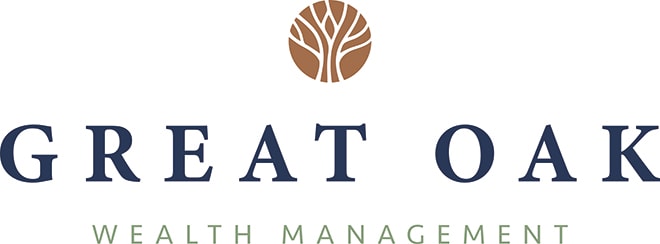Selecting the right advisor that fits you well is crucial for your financial future. You will be basing significant decisions on their recommendations. You need to know the appropriate questions to ask and how to determine if the answers are adequate.
In a relatively short time, you should be able to discern which advisor is right for you. There are significant distinctions that you should learn, though.
Find a CERTIFIED FINANCIAL PLANNER™
Anyone can call themselves a financial advisor. Certification is not required. If you see the CFP® mark after an advisor’s name, you know that this individual has made a significant effort to obtain this respected certification.
Only those who have fulfilled the certification and renewal standards of the CFP Board can display the CFP® certification mark. These requirements are called the four Es: Education, Examination, Experience, and Ethical requirements. There are four important reasons why the financial planner you select should be a CERTIFIED FINANCIAL PLANNER™.
Are your best interests front and center?
Just like you may think all advisors are certified, you would think all planners put your best interest first, right? Although hard to believe, that’s not always the case. Before you waste time interviewing financial advisors, determine if your interests will be THE priority. Ask if they are fiduciaries.
“Find out if the advisor is a fiduciary before you schedule the first meeting”
Why is this important? If a financial advisor is not a fiduciary, they are not held to the legal obligation to act in your best interest. Instead, they follow the suitability standard. In other words, the advisor must reasonably believe that any recommendations are suitable for clients. “Reasonably believe” and “suitable” are too vague for me, especially concerning my finances.
Also, as a fiduciary, any and all conflicts of interest must be disclosed in advance. Would you rather receive reasonably suitable advice with no knowledge of conflicts of interest or advice in your best interest? To learn more, read my blog post, Why Your Advisor Should be a Fiduciary.
Who’s paying the piper?
The financial advisor does not work for free. How that person gets paid does have a bearing on your relationship. Financial advisors operate under one of three compensation structures:
Commission: A broker will receive a commission by selling financial products such as insurance, annuities, or mutual funds. It’s a sales charge or sales load skimmed off the top of the investment. The company pays the broker for recommending their product – much like a kickback.
Commissions naturally create a conflict of interest. Brokers are incentivized to recommend products that pay them the highest commissions, whether or not those investments are in your best interest.
Fee-Only: There are no commissions, sales charges, or sales loads. Compensation does not come from the financial products recommended. Fee-only planners receive payment for their advice through either an hourly fee, a retainer fee, or a percentage of your assets under their management.
Fee-Based: This is a term created to confuse you. It sounds very similar to fee-only, but that’s where the similarity ends. Yes, the advisor can receive fees like a fee-only advisor, but they also receive commissions from annuities, insurance, and mutual funds.
Payment structure does affect the advice
Great Oak Wealth Management is a fiduciary, fee-only advisory firm that only employs CERTIFIED FINANCIAL PLANNER™ professionals. That allows us, and all fee-only advisors, to provide objective recommendations that place your needs first.
The commission and fee-based models have the potential for conflicts of interest. Yes, I’m biased toward the fee-only model, but it’s essential to understand how your advisor gets paid. It will affect the advice you receive.
It’s just common sense to know that your interests will be put first, how the advisor gets paid, and that that person has made an effort to become a CERTIFIED FINANCIAL PLANNER™ professional.
The background check
Yes, you need to do a background check. Look at it as your pre-interview information gathering. If you visit the Financial Industry Regulatory Authority’s (FINRA’s) BrokerCheck, you can find out if an advisor has had any regulatory actions, violations, or complaints. You can also view employment history and licenses.
Fee-only, Fiduciary, CFP®, FINRA background – check, check, check, and check
You’ve been able to whittle down the field to three or four candidates. Now, it’s time to start the interview process and dig into the details with the right questions.
The interview
How did you become a financial planner?
I call this the verbal resumé. You learn more about the advisor’s experience and history and get a better feel and understanding of the advisor and their motivation by listening to their story. Poke and prod a bit and ask for more details.
How are you different than any other advisor?
Look for something unique. It could be they have a specialty, a different approach to service, availability to meet on weekends, or they’ll conduct meetings through video chats, as we do. Whatever it is, an advisor should provide something compelling that sets them apart and, most importantly, be excited about that difference.
Can you provide references?
References are an excellent way to learn more about an advisor. I recommend you get two or three references in a similar situation as yours. Please find out how long they’ve worked with the advisor and what they believe the advisor’s strengths and weaknesses are.
Services
First, you need to consider what your individual needs are. You want a long-term relationship with your advisor, and remember, needs will change over five, ten, and twenty years. Can your financial advisor handle the different situations that will arise during your lifetime?
Comprehensive financial planners provide various services to their clients. Your financial life isn’t limited to investments – your advisor shouldn’t be either. By providing planning services for estate, insurance, investment, retirement, and tax planning, to name a few, chances are your advisor will have the knowledge to help you. Advisors that handle only investments may not see the whole picture.
Communication
Good financial advisors check in and meet with their clients periodically. Every client has different communication preferences, but it’s essential to check that the advisor will be easily accessible and proactive during good and bad times.
Client experience
Learn about the process. Ask the advisor to walk you through the relationship over the next year and beyond. This will create expectations, or benchmarks, that you can use to measure your relationship and determine its success.
Looking for a financial advisor is hard work and time-consuming. Remember that your effort will pay off in the long run.
If you found this helpful, please share this information with friends and family. It could save them a lot of aggravation.








